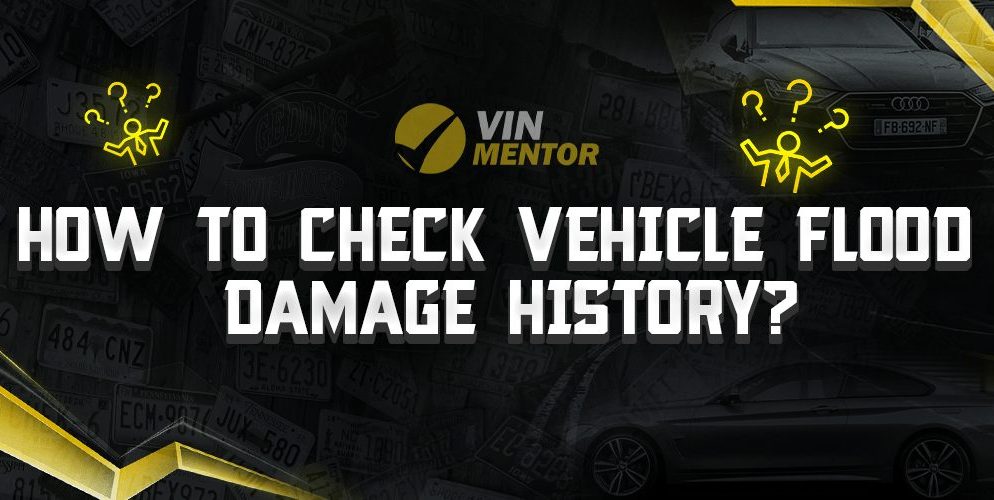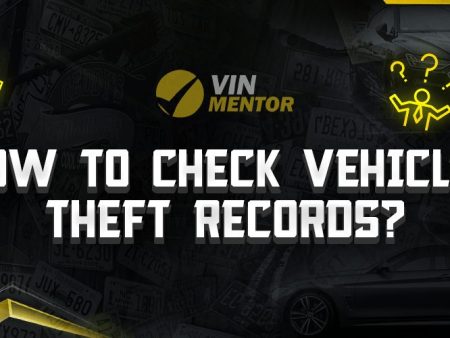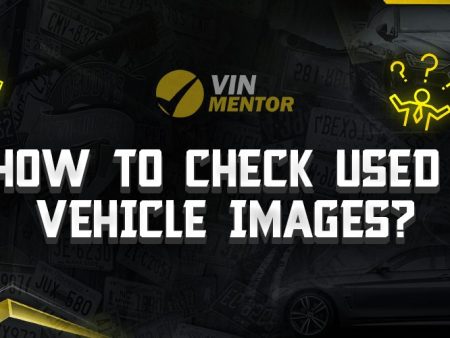

When purchasing a used vehicle, it’s essential to know its history to ensure you’re making a wise investment. One crucial aspect to consider is whether the vehicle has been involved in a flood. Flood-damaged vehicles can suffer from hidden issues that may affect their performance, safety, and longevity. Read on to discover several methods and resources that can help you check the flood damage history of a vehicle before making a purchase.
Key Takeaways
- Understanding the importance of checking a vehicle’s flood damage history.
- Recognizing the potential risks and hidden issues associated with flood-damaged vehicles.
- Exploring different methods and resources available for conducting flood damage checks.
- Learning how to interpret the information obtained and make an informed decision.
What Are the Methods for Verifying the Flood Damage History of a Vehicle?
By understanding the methods available to determine whether a vehicle has been affected by flooding, you can make an informed decision and avoid potential risks. We will explore several effective approaches to verify a vehicle’s flood damage history, ranging from vehicle history reports and visual inspections to professional assessments, title and ownership checks, and VIN checks.
Vehicle History Reports
One of the most reliable ways to check a vehicle’s flood damage history is through a comprehensive vehicle history report. These reports provide valuable information about a vehicle’s past, including accidents, title status, odometer readings, and flood damage records. These detailed reports based on the Vehicle Identification Number (VIN), helping you uncover any flood-related incidents.
Visual Inspection
Performing a thorough visual inspection is crucial when examining a used vehicle for flood damage. Look for signs of water stains, mold, or musty odors in the interior. Check for mud or debris in hard-to-reach areas, such as the engine bay or undercarriage. Inspecting the headlights, taillights, and other electrical components can also reveal signs of water damage.
Professional Inspection
Consider hiring a professional mechanic or technician to conduct a comprehensive inspection of the vehicle. These experts have the knowledge and experience to identify potential flood damage indicators, such as corrosion, rust, or abnormal wear and tear. They can also inspect the mechanical and electrical systems for any hidden issues.
Title and Ownership Checks
Examining the vehicle’s title and ownership history can provide additional insights into its flood damage status. Look for salvage or rebuilt titles, as these often indicate that the vehicle has been involved in significant damage, including floods. It’s important to note that flood-damaged vehicles may not always have salvage titles, so a comprehensive check is necessary.
VIN Check
Performing a VIN check using reputable online services is an effective way to uncover a vehicle’s flood damage history. Several websites provide comprehensive VIN check services, allowing you to access crucial information about the vehicle’s past. These services often provide details about accidents, flood damage, salvage records, and more.
Conclusion
When considering the purchase of a used vehicle, it’s essential to be aware of its flood damage history. By utilizing methods such as vehicle history reports, visual inspections, professional inspections, title check, and VIN check, you can gather valuable information that will help you make an informed decision. Remember, taking the time to check a vehicle’s flood damage history can potentially save you from purchasing a problem-ridden vehicle. To conduct a thorough VIN check, choose from our recommended list of best VIN Check Websites to ensure you have access to accurate and reliable information.
FAQ
Why is it important to check a vehicle’s flood damage history?
Checking a vehicle’s flood damage history is crucial because flood-damaged vehicles can have hidden issues that impact their performance, safety, and longevity. Without knowing the flood damage history, you risk purchasing a vehicle with water-related damage that may lead to costly repairs or safety hazards.
What are the potential risks associated with flood-damaged vehicles?
Flood-damaged vehicles can have a range of issues, including electrical problems, corrosion, engine damage, and mold growth. These issues can affect the vehicle’s functionality, reliability, and resale value. In some cases, flood damage may also compromise the structural integrity of the vehicle, posing a safety risk.
How can I perform a visual inspection to check for flood damage?
During a visual inspection, you should look for signs of water stains, mold, or musty odors in the interior. Examine the engine bay and undercarriage for mud or debris. Additionally, inspect the headlights, taillights, and other electrical components for signs of water damage.
Are vehicle history reports reliable for checking flood damage history?
Yes, vehicle history reports are a reliable method for checking a vehicle’s flood damage history. These reports provide detailed information based on the vehicle’s VIN, including any flood-related incidents, title status, accidents, and odometer readings. They are compiled from various sources and can give you a comprehensive overview of the vehicle’s past.
Can flood-damaged vehicles have clean titles?
Yes, flood-damaged vehicles may not always have salvage titles. It’s important to conduct a comprehensive check that includes examining the vehicle’s title and ownership history. Look for salvage or rebuilt titles, as these often indicate significant damage, including floods. However, some flood-damaged vehicles may have clean titles, so additional checks, such as visual inspections and professional assessments, are necessary.












